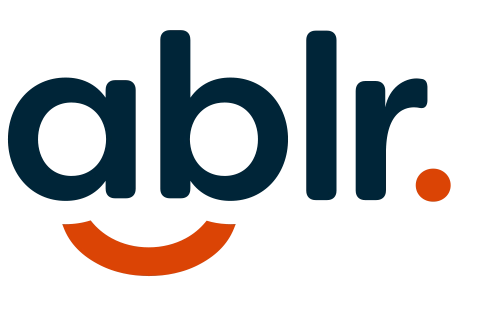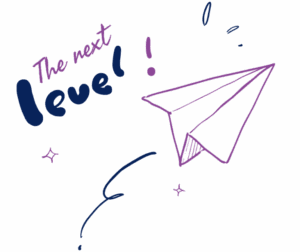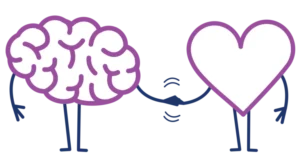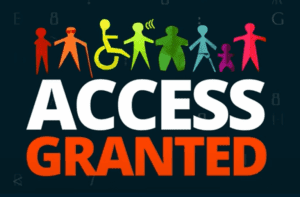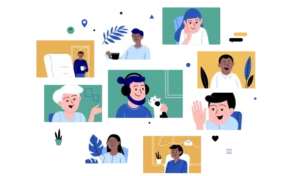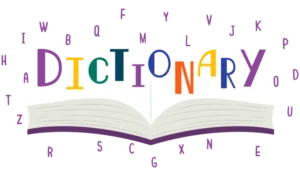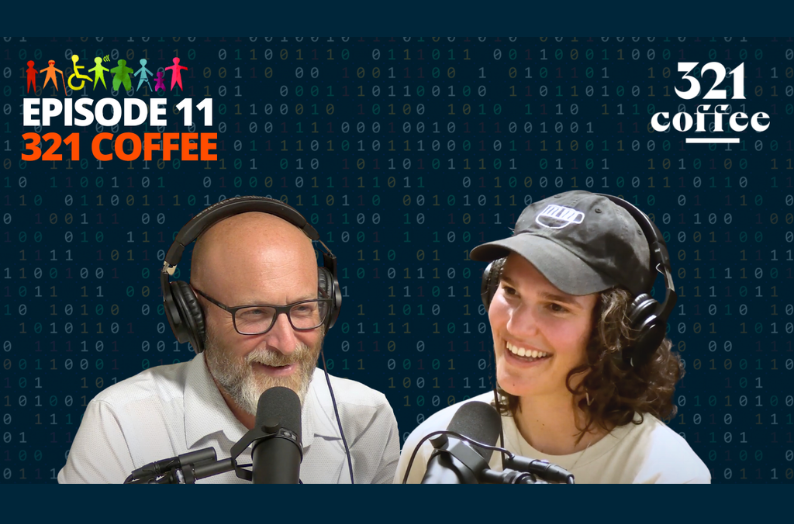Access Granted: 321 Coffee Part 1 Transcript. Tune in wherever you listen to podcasts.
Mike: Welcome back to Access Granted, a podcast powered by Ablr. In today’s episode, I’m sitting down with Lindsay Wrege, a co founder from 321 Coffee. If you haven’t heard their story, it began when Lindsay and Michael started college and quickly realized their friends with disabilities were getting lesser opportunities to succeed in life and especially in the workforce.
And that’s when they worked from the ground up to build a coffee business that employs individuals with intellectual and developmental disabilities. Their mission began over six years ago, and today their impact is growing with every milestone they hit. There is much to learn from their mission driven hearts and minds. So let’s get right to it. Before we jump in, let’s take a shot, one at the hat. But I want to do a little shout out. This is 321 Coffee’s hat. Now talk real quick about the hat. Where did the design come from? We really need to know this.
Lindsay: Yeah, so this is a off-market employee-only hat. So you can’t, you can’t buy this.
Mike: Alright. Let’s jump in because it’s funny. Michael’s not here. So Michael your business partner was supposed to be here today. And I was super excited because I had some questions. So I’m gonna change things up a little bit. I’m literally blown away with what you do, and you and Michael have created.
Then I throw Ablr into this, and then Liv. Which I didn’t know for the longest time, and Liv’s involved,. And man, like and your parents, and your friends, and everyone’s always around you. And so when I think of you and Michael, and what you’re doing, there’s like a true love and like sincerity and genuine approach, like just human kindness and inclusion and it’s natural. And so how did you become you? Like, I love that. And I know it’s a deep question, but how? Tell me a little bit about your life, your upbringing, your friends.
Lindsay: I’ll share a little bit about like the origin of 321 story.
Michael and I are co-founders of 321. 321 Coffee, we’re a coffee shop and roaster and we’re big on inclusion. So we focus on employing people with intellectual and developmental disabilities. We’ve got multiple shops across the Triangle, employ over 50 people, which is something that I’m super proud of. And it’s just amazing to see, again, when you create the opportunity, when you set the bar high, all that these people are capable of. But genuinely like part of that I give such credit to. So when I was in elementary school, switched schools, didn’t know anyone. And my first friends were some girls in the class that had disabilities.
And there was, there was four girls that I became friends with. Emma, Grace, Anna, Sarah, the four of them are fantastic, turned into lifelong friends. And I bring that up, one to say like that was such an impetus behind like learning about disability inclusion and accessibility and like what led to wanting to start 321.
But also truly like the lessons that I have learned From having them as my best friends, like Grace, specifically. She is just an absolute joy. Like anytime you see her, she is so happy to be with everyone that she’s around. She is so appreciative of everyone, like, spending time together. She will compliment your outfit and your hair and, “oh my gosh, is that a new pair of shoes?”
“I love it on you!” Like she is just so in the moment and people-first and people-focused. I mean, anytime you’re having a bad day it’s like, I just need to text Grace, call Grace, like see if Grace can hang out. Because she just will turn your day around instantly. But also, even if you’re not having a bad day, she just like levels up any environment. And I love that and I want to be like that.
Mike: That’s incredible. It’s like you you spend time with the people that you want to be like.
Lindsay: Yeah, yeah.
Mike: And if you want to be positive and uplifting and confident and secure you spend time with people that are confident, uplifting, and secure.
Lindsay: Yeah.
Mike: And so the beauty of that, that statement is, you can get that love from anywhere.
Lindsay: Totally. And it’s something you see every day like within Ablr. But it’s recognizing that you have so much to learn from people who are different than you. And people that can challenge your lived experiences and the way that you’ve always seen things. And yeah, open your eyes and challenge you to think differently.
Mike: Yeah it does. And tell me, so you grew up, this was in high school?
Lindsay: No, we date back to elementary.
Second, third, fourth grade.
Mike: Third grade.
Lindsay: Yeah.
Mike: And you all are still friends today.
Lindsay: Oh, yeah.
Mike: That was like six years ago, because you’re only, what, 12 now?
So my goodness, so you got lifelong friends that you.
Lindsay: Lifelong friends.
Mike: So that’s where like, now talk to me about that because is that like an empathetic thing or is it like no it’s not empathetic at all? This is what I know. This is what I was that I grew up with.
Lindsay: Yeah.
Mike: And this is what makes me feel good, and this is why I choose to spend my time doing, and that’s it seems like a lifelong mission for you.
Lindsay: Yeah. I mean like and truly at the time right when you’re six, seven, eight years old, the labels, “oh well she has Down syndrome,” and “she has DiGeorge syndrome,” and “she had a stroke.” And that’s respectively all what these different individuals have. That doesn’t mean anything to a seven year old, right?
Like these are just like girls that, you know Grace and I met because we were in the same dance class. And Sarah lived down the street, and her parents would take, we went to an elementary school like in our neighborhood, and her parents would take her to school in the golf cart.
And I was like, well I want to ride in the golf cart. And so Sarah and I became friends because we got to carpool in the golf cart, right? Love a golf cart! Emma also danced. Emma and I partnered together on like a science fair project. They all love the color purple. We all love to play hide and go seek at recess.
Like it was just bonding over we were all relatively new to the school, we had a lot of shared interests and grew up staying really great friends. And definitely as I grew up, I started to learn more about disability and differences and how people might do things in different ways. But it was never out of a like, oh because I feel bad for them.
It was because like, okay well these are my friends. So we’ve got to figure out how we’re going to play together. And, you know, I love sharing the story of the first time I played tennis with Sarah. So Sarah had a stroke when she was born. So she doesn’t have use of her left arm. And I remember standing across from her on the tennis court thinking like, I don’t really know how this is going to work, right?
I think about how I serve a tennis ball. I toss it with one arm. I hit it with the other. That involves two arms. Sarah doesn’t have use of her left arm. No problem at all. She bounces the ball on her racket. Pops it up. Hits it. Comes over the net. I can return it. And just like that we could play tennis. And it was you know, sure not the same as someone might traditionally play tennis, but it doesn’t matter.
What matters is that we could play together.
Mike: I think that’s incredible. But it also, I just feel like there’s a level of being born with kindness and empathy. Or being exposed to kindness and empathy at a very young age. Did you run into situations growing up where you had other people looking at you or saying, well why don’t you play with us?
Because you know, kids can be cruel. Like, I mean, I don’t mean.
Lindsay: Kids can be mean, yeah.
Mike: And so you’re like, hey, and they’re like, “well she’s different.” And it’s like well, at that age did you feel any of that ever at a young age?
Lindsay: Yeah.
Mike: Did anything stick with you throughout the years?
Lindsay: So two stories. And I can’t totally take total credit for like, I remember this happening because I was pretty young. But like stories that my mom has shared with me. And then stories that other people from like elementary school that I’ve re bumped into have shared. One was in kindergarten. And again, this is what, I don’t totally remember the story. But my mom has shared, that I came home from school one day, like relatively sad. And my mom was like, Lindsay, like why are you sad?
And she said, and I apparently said, like oh well, some girls invited me to be in their club today at recess. And my mom was like, well why is that a bad thing? That sounds exciting that you got invited to join a club. And I shared with my mom that the club had a rule.
If you wanted to be in this club, you couldn’t be friends with the certain people. And so, my mom said like, oh well that is a little sad Lindsay, so what did you do? And I told my mom that I started my own club, and that my club had a rule as well. And it was that if you wanted to be in this club, you had to be friends with everyone.
And I’m really proud of that. And I don’t remember that you know totally, but it’s really powerful.
Mike: It’s incredibly powerful. And I remember as a kid having moments of, I just don’t remember being able to find empathy other than people just getting in fights or getting picked on.
And it’s like, to have that it’s such a young age is remarkable. And I think it’s like everybody has a path in this world and this journey in this world. But like, it’s clear like very clear at a young age. And I say that because I’m still blown away. Like I’m 48 right now, okay? I’m just starting to figure out what I think my path may be.
Like, you’ve been on it since you were like 7 years old. Right?
Lindsay: I guess. Yeah, right?
Mike: Yeah.
Lindsay: Just trying to be nice and being inclusive and.
Mike: That’s remarkable.
Lindsay: Thank you.
Mike: I’m just so excited, some of the content that you’re doing and then seeing with the Whole Foods stuff.
Lindsay: I mean, the traction that we have had is unbelievable. And it’s something that if someone had told me literally, and I think about this sometimes in a really prideful way. Like when I was graduating, or when I was like junior, senior in high school. If someone had said like okay, then here’s what the next seven years of your life are gonna look like.
You’re gonna go to college. You’re gonna start this company that roots back to some of your lifelong friends from elementary school. It’s gonna be able to turn into a full time job. You’re then gonna go on to scale that into multiple locations. And have tech companies partnering with you and being on the stage of Lenovo conferences. I think 16, 17, 18 year old Lindsay would have literally said, first of all like why?
Like, what do you mean? Like, that just doesn’t seem to make any sense. But also I think I would have said, I don’t think life could get that good. And I feel really lucky to have that reflection and that life does feel so good. And it’s not to say it’s easy, and it’s not to say that there’s not hard days. But it absolutely is to say that there’s a lot of good and I feel incredibly fortunate to be able to surround myself and fill my days with so many good people doing good things.
Yeah.
Mike: Well, the scholarships alone. I mean, to have two people with Park Scholarships, full rides. And then you guys meet in college, create this incredible friendship. And then where’s the idea come from? Is it a school project that evolves into an idea? Like where does it, where does coffee come from?
Lindsay: Yeah. So great question. So I sort of had this idea in high school because I had seen. So like I said, I met these friends, stayed really great friends with them throughout my entire life. And so in high school, I really started to see, like wow my life is turning into scholarships, and college, and study abroad, and moving out. And their life was not.
And it was really emphasized when one of my friends Emma, she got a job in high school at a grocery store, which was awesome. And I remember chatting with her one day about it. I was like, Emma this is just so fantastic. And she said, thanks but all they let me do is clean bathrooms. And it was sort of the revelation that like, I had heard the statistic that 80 percent of adults with disabilities are unemployed.
And that sucks. And then to take it one step further and recognize that like the 20 percent of people who are, it’s not meaningful. It’s not necessarily dignified work. It’s not necessarily choice when that’s something that everyone is deserving of. So I had seen another concept started that was in the coffee space and focused on employing people with disabilities.
And it was like, that is awesome. My friends would thrive, but also how important is that for the rest of the community to have a place where you can come in and see and chat with and interact with people with disabilities. And recognize all that they can bring to the professional space, but also just to society.
So I sort of had that idea and didn’t do anything with it. And then one day was sitting at lunch in college with some people I just met and said, you know I think it’d be really cool to start a coffee shop that focused on employing people with disabilities. Every single one of them said, that’s awesome.
I would help. And it was like, really? And they’re like, yeah let’s do it. And it’s like, all right let’s do it. Let’s come up with a name. And someone said, all right you know, people with Down Syndrome have three copies of the 21st chromosome, 3, 2, 1. How about 321 Coffee? And we’re like, perfect. Yep.
Next step. We need a logo. And my suite mate at the time was in the graphic design school. So I was like, hey I need this logo. 321 Coffee, chromosomes, you got it? She’s like for sure. Here you go. And that was our first logo. And it was just so bootstrapped. Didn’t know what we were doing. Like oh, I guess companies have logos, I guess companies have taglines, like, figuring it out. And was so lucky to get connected with a lot of people that did know what they were doing, who helped, that we could learn from, receive direction and advice from, etc.
That really helped nudge us in the right direction.
Mike: What was it? Because I remember the first time I was exposed to y’all was down at the Raleigh’s food market.
Lindsay: The Farmers Market.
Mike: And then we came and I think we did roasting.
Lindsay: Yes.
Mike: And then we made little, little Ablr bags of coffee. Which I was looking for today.
I was like, God where is it?
Lindsay: Oh my God. If you pulled out one of those, that is.
Mike: That was old school. That is years ago, wasn’t it?
Lindsay: Yeah, at least. Yeah.
Mike: Yeah. That was, at that time I was like, man this is cool. Like, this is really cool.
Lindsay: It was cool.
Mike: And I’m like we got a sticker on our coffee, we got our own coffee.
Like this could be something crazy for us.
Lindsay: A couple things here. One, I definitely want to talk a little bit about the Farmers Market because I’m obsessed with that shop. But secondly.
Mike: It’s a great shop.
Lindsay: To jump the gun a little bit into the experience that you guys had. So yes, I remember chatting with John one day and he was like, I’d really like to have like an Ablr bag of coffee.
And at the time we had this like one base bag of coffee and we were just putting our own stickers on it. And I was like, well we could just change the sticker. And that has turned into one of our most popular ways of partnering with other companies is this whole like co-branded offering that we’re able to do.
We’ve now gone on to build like a truly co-branded base bag and we’ve got people, hundreds of companies making it. And it was all just because John was like I’d really like an Ablr bag of coffee.
Mike: It was really fun. I remember that was. You know, getting more exposure around it. But I think, I feel like some of our team got to roast.
I think we bagged, but it was a neat, it was a neat experience. And so that was three years ago. And so when you look back at this. Like it’s just how important is education in this, right? Because when we talk about Ablr and we’ll get into the integration, we’ll talk a little bit about that. But a big part of this inclusion thing, I know it is. It’s one, it’s exposure. But a big part of it is education. So talk a little bit about that.
Lindsay: Yeah. I mean and I think a huge part of it, I give credit to John. That his whole thing of proximity builds empathy right? How when you can create those opportunities for people to chat with one another and to realize that oh we both have a dog, and you know we both love to play tennis, and you get more eye opening experiences to what people are capable of.
You realize that they’re people, and they’re people, period. And yes, they have a disability and that might mean that certain things they need to do differently or pay special attention to or whatever it is. But at the end of the day, they’re a person. I think another area around education specifically that’s big is creating spaces for people to ask questions and not, you know, forcing. I think a lot of people, they don’t know what to say, they don’t know what to do, they don’t want to do it wrong so they don’t do anything at all, and that’s problematic too. So that’s a big area that I always try to say is, I’m not necessarily an expert, but I definitely am around this a lot.
So like if there’s questions ,ask. And do you ask me? Ask people with disabilities, right? Like they’re the biggest experts on themselves. Do it in a respectful way, but ask.
Mike: It kind of goes both ways right? So if I’m trying to learn and I make a mistake, I can get crushed by that mistake, right? Or the other individual that may have the disability can actually work with me and be open hearted to saying, hey this individual is trying.
And it’s still not working, but they’re trying.
Lindsay: Yeah.
Mike: And they have the option too, to say they can reject me and continue this potential stigma. Or like well fine, I’m just trying to hold the door for you. I didn’t mean to you know. Or it was like, hey work with me right?
So I think it goes both ways.
Lindsay: Yeah.
Mike: Maybe it shouldn’t right now because of the years of being underserviced and treated poorly. But regardless, we have to do this together I think. Like it goes both ways. So are you seeing that with everything you’re doing, and all the success that you’re having, and the people that you’re employing, and the proximity to it? Like what’s the vibe like around 321? Like the energy.
Lindsay: Yeah. So it’s really interesting. We see a lot of people that know our story. Know what we stand for and seek us out right. And it’s awesome. And it’s people that have stumbled upon us, found us on social media. Whatever it is, but like we are their coffee of choice. We have plenty of other people that just see the word coffee and they’re like, oh I need a cup of coffee and they come.
They have no idea what they’re walking into.
Mike: Really?
Lindsay: Yeah.
Mike: That’s awesome.
Lindsay: It is. It’s fantastic. And yes, like there’s a significance in our name. But if you don’t know, right? We get asked all the time, oh are you guys out of Orlando? And like, I guess the zip code or the area code in Orlando is 321. So it’d be like if someone had like 919 coffee, right?
Mike: Oh, yeah. I didn’t know that.
Lindsay: I didn’t either.
Mike: That’s cool though.
Lindsay: I was like, why do people keep talking about Orlando? And yeah, anyways. So I think we have an interesting take on. And I would say both of those sort of categories of people, if you will, have things that they do really well and they have things that I’m like I sort of wish this wasn’t happening right now.
So like for example, people that know our mission will come in and they’re so happy to be there. And that’s fantastic right? Like they are chatting with our people, they’re asking questions, they’re patient, like they’re doing a lot of things really well. But every once in a while we’ll mess up, right?
You ordered a hot french vanilla latte, we made a cold caramel latte. Tell me. Tell them. Tell them that what you got is not what. Or what you wanted, and what you ordered, and what you paid for is not what you received. Uphold that standard and let us make it right. But we’ll have plenty of people that they don’t want to hurt our feelings.
They don’t want to hurt the barista’s feelings. They don’t want the individual to feel like they did anything wrong. But like that’s problematic too right?
Mike: That doesn’t help.
Lindsay: That doesn’t help. You gotta hold the bar high and hold them to standards and can do it. So there’s that element.
And then on the flip end with the people that don’t know what they’re walking into. I think that’s really powerful because then they’re sort of forced into this world of inclusion that they didn’t expect. And right when you expect to just sort of be in a traditional coffee shop and all of a sudden, like yeah you’re standing in front of somebody with autism. There’s somebody with Down syndrome working the espresso machine.
And I want that person to realize like, okay something’s happening a little different here. But I want that person to then get the drink, the cup of coffee and be like, wow this is a fantastic cup of coffee. And so earlier you asked something along the lines of like, there’s some unfortunate stigmas. And like have you experienced that and is it still around today?
And I think the answer is yes, it is still around today. Because we’ll have so many people that will pull me over and they’ll say like, I had never been here before. I just read your mission, I think this is amazing, and this coffee is actually so good. And it’s like, okay I appreciate that you like the product, and I appreciate that you just learned about this. But I wish it wasn’t a surprise, right?
I recognize that there’s a stigma that disability means less than, and that is something that I want 321 Coffee to break down. I want this to be an excellent product because these people are capable, they work hard, they know what they’re doing. There is no reason that this product should be anything less than excellent.
Mike: I completely agree, especially from a consumer perspective. You’re spending 5 dollars for a glass of coffee or a cup of coffee. You want it to be great.
Lindsay: Absolutely.
Mike: And it shouldn’t be anything but what you build and regardless of people who are making it, that’s your brand.
Lindsay: Yep.
Mike: I’m like sincerely honored.
Like it really is an honor watch. Like so there’s been so much growth with the organization. But I also know there’s a history with Ablr. So talk to me a little bit about Johnny Sams. Like how did that? Because I know that’s kind of how I started meeting you a little bit more and seeing you a little bit more.
And I know that he’s sort of been like a mentor and a friend and a partner.
Lindsay: Alright.
Mike: Tell me a little bit about that.
Lindsay: So I met John through Chris. Who’s literally sitting there.
Mike: Oh, really? Oh, that’s great. He asked if he could come today. I was like yeah come on.
Lindsay: That’s so cool. Yeah. So I don’t even remember how we met Chris. But we met Chris and Chris knew the world and he was like, hey I think there’s like a couple of people that I’d really like to introduce you to. And one of the people that like, you really need to know is this guy named John Samuel. And we were like, alright yeah like whatever, we’ll have a phone call with him.
And I distinctly remember. The first phone call that I ever had with John. I was sitting in my car in the parking lot of the Farmers Market. And I just, I told him at the end of it. I was like I think I’ve been smiling this entire phone call. I was just like everything that he said and like when he talked about proximity builds empathy, and he talked about margin equals mission and just like his approach to what he’s been doing with Ablr and I think at the time it was LCI Tech and some of his goals for the future and his life path and, advice that he had for us was like, everything just resonated so much. I remember calling Michael and I was like, I just met someone who’s amazing and like, we need to meet him again.
We need to meet him in person because like this is awesome. And it’s not every day that you meet somebody that like from right off the bat is like so. You just click with so well. And I hope John felt that way. But I was totally.
Mike: That’s actually, it’s funny, he told me that he didn’t. No, I’m kidding, I’m kidding.
No he adores you. It’s just so nice to see that like, even with GAAD, you were there. Like, there’s just such a nice relationship between the two companies that has been. I think you were a couple years ahead of us I’m pretty sure, right? Or right around, maybe around the same time.
When did you, when was it, what year did you open up?
Lindsay: So we were like folding table days in 2017. We opened the Farmers Market in 2019. And then the rest of the stores, a lot of them came online in 2022.
Mike: So you met with John, and then there was this sort of let’s visit right? We came and visited. But what’s that sort of relationship like when you have an individual with a disability who, one who’s been through a lot and can provide sort of not only perspective from what he was wanting to do from an inclusion perspective, but also like as a mentor, right?
Lindsay: That I think is one of the reasons why we’ve been so fortunate to have John. Because he obviously has so much experience in business acumen from an entrepreneurial leadership experience, but he is also so deep and understanding of the mission and in both companies, right?
Both matter. You know we’re here to build a business. We’re here to scale a business. But we’re also here to do it in the right way. And so oftentimes when making decisions, you sometimes have to pick. And I think John has been so inspirational about saying like, okay don’t pick, find ways that you don’t have to pick.
So for example, I remember when we first started roasting coffee. We were roasting coffee at the Farmers Market. We had this essentially like a glorified air popped popcorn machine was like our roaster. It was a baby, like it could have fit on this table.
Mike: It was back by the window too, I remember.
Lindsay: It was, exactly. It roasted two pounds of coffee at a time. Really, really small. And we were thinking on like, how do we scale? Like when we needed to, when we’re starting to outgrow that. And the obvious solution is like okay well you just go get a bigger roaster right? You increase your efficiency and like it takes the same amount of time to roast two pounds as it does 10 pounds, as it does 40 pounds, as it does a hundred pounds.
I can’t really speak with complete confidence to like the hundred plus world because we’re not there.
Mike: Can we get Michael? Can we phone a friend?
Lindsay: But one of the things that John was saying is, another way of scaling up is okay, automate anything, right? So like look for ways that like right now, at the time we were hand packing. We had our scale, we had the bucket, you’re scooping out to measure out 0.75 pounds. You’re then loading it into the bag, you’re sealing it, you’re rolling it down. It was very hands on process. So another way of scaling up and increasing your efficiency is to automate. And John was so good at saying like okay, remember though you’re here to employ people. You’re not here to purchase robots.
You’re not here to reduce the number of people that you have to have working at a time. That being said, you do need to be able to roast more than 2 pounds of coffee every 20 minutes.
Mike: Yeah, that’s true.
Lindsay: But right, like having someone that was able to make decisions with, we’re keeping both things in mind.
And that’s just one example of many that we’ve had to make that John has been willing to think through and talk through. So, figure out how do you not have to pick.
Mike: That’s great.
Thanks for listening to this episode of Access Granted with co-founder Lindsay Wrege from 321 Coffee. If there’s anything to take away from this episode, small steps can make a massive difference in the lives of individuals with disabilities.
Co-founders Michael and Lindsay started by championing inclusion in their personal lives, built a business that offers meaningful employment opportunities, and now are scaling their mission to create more jobs and bring more awareness to disability inclusion. If you still need to follow along with their journey head to 321Coffee.com to support this fantastic, intentional business.
